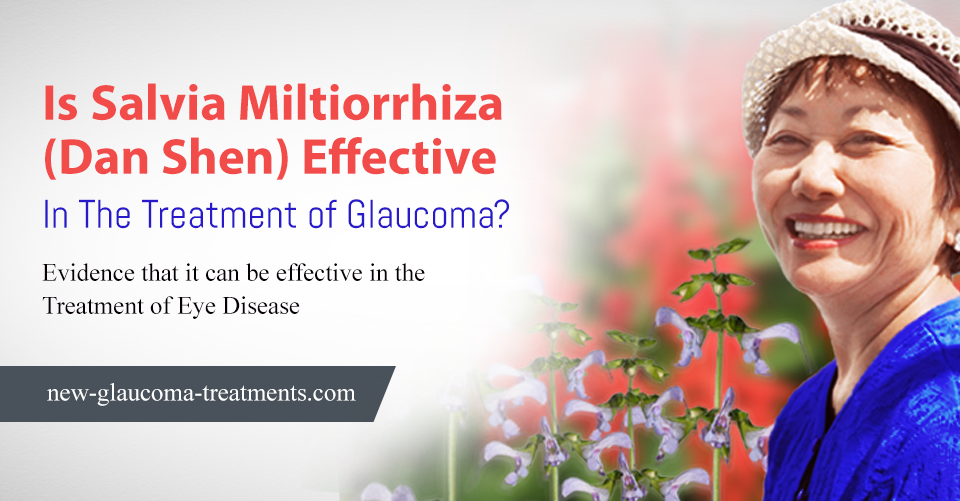Is Salvia Miltiorrhiza (Dan Shen) Effective In The Treatment of Glaucoma?
What Is Salvia miltiorrhiza (Dan Shen)
Salvia miltiorrhiza (Dan Shen) is an extract from the root of the plant known as Red Sage or Chinese Sage. The extract is a complex mixture of active chemicals. Among other things, these active ingredients have blood thinning and blood flow modifying activity.
Evidence That It Can Be Effective in the Treatment of Eye Disease:
Glaucoma is a disease of the retinal ganglion cells which make up the optic nerve. Over the years many different chemicals have been tested in laboratory animals to determine whether there is an effect on retinal cells. In one study of a rabbit model of glaucoma, intravenous Salvia miltiorrhiza was evaluated. Notably, retinal ganglion cell damage in these rabbits was reduced by intravenous treatment with Salvia miltiorrhiza.[1]
Benefits seen in laboratory animals may be encouraging, but they don’t always translate to benefits in humans. The only study performed on humans using Salvia miltiorrhiza as a treatment of glaucoma used intramuscular injections of Salvia miltiorrhiza. In this study vision seemed to improve and visual fields appeared to stabilize. However, it is not known whether such an effect would be seen in those taking Salvia miltiorrhiza by mouth.[2]
Potential Side Effects and Risks:
The more common side effects seen with Salvia miltiorrhiza include drowsiness, dizziness, itching, upset stomach, and undesirable bleeding.
Potential Drug Interactions
Blood Thinners
Severe bleeding is theoretically possible if Salvia miltiorrhiza is used in someone already taking blood thinners. An incomplete list of blood thinners with which Salvia miltiorrhiza should be avoided would include aspirin, clopidogrel (Plavix), dalteparin (Fragmin), enoxaparin (Lovenox), heparin, ticlopidine (Ticlid), and warfarin (Coumadin).
Digoxin
Salvia miltiorrhiza is chemically similar to Digoxin. It can both alter the “digoxin level” blood test results as well as potentially lead to life-threatening side effects when taken with Digoxin. Therefore, Salvia miltiorrhiza should not be taken by anyone already taking Digoxin.
>> Other Glaucoma Treatment Options <<
(This will take you to Dr. David Richardson’s website)
Recommended Dosage
Although there is some evidence that Salvia miltiorrhiza could be useful in the treatment of glaucoma, no study has been performed using commonly available over-the-counter oral supplements. As such, no one knows what dose of Salvia miltiorrhiza taken by mouth would be most effective in the treatment of glaucoma.
Where to Buy
As with most supplements, cost can vary widely. Take note, however, that the quality can vary as much as the price. To be certain you are getting a high quality product I would recommend you only purchase supplements such as Salvia miltiorrhiza from a trusted brand.
References
- Zhu MD, Cai FY. Evidence of compromised circulation in the pathogenesis of optic nerve damage in chronic glaucomatous rabbit. Chin Med J. 1993;106:922–927.
- Wu ZZ, Jiang YQ, Yi SM, et al. Radix salviae miltiorrhizae in middle and late-stage glaucoma. Chin Med J . 1983;96:445–447.
Looking for an Ophthalmologist in California?
Dr. David Richardson is taking new patients at his office in San Marino, CA., and is always willing to provide a second opinion for those who would like the peace-of-mind that such a consultation would provide.



